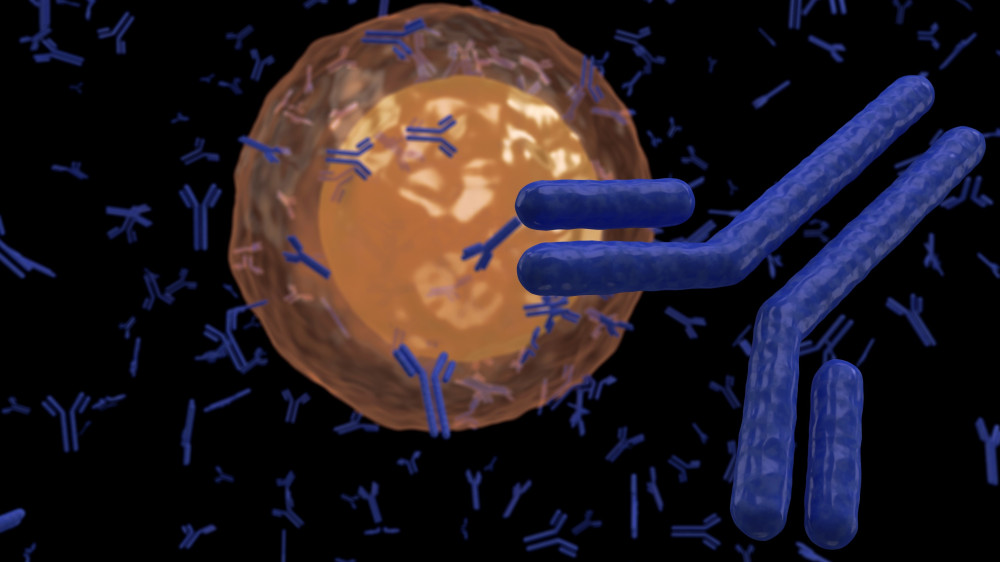Improving the reproducibility of research using antibodies

In collaboration with the Only Good Antibodies (OGA) community, we are bringing together stakeholders from across the biosciences to improve the integrity and reproducibility of biomedical research that relies on commercial antibodies.
Experiments which are not reproducible waste research funding and time. This delays scientific progress and drug development pipelines and leads to the unnecessary use of animals where in vivo experiments or animal-derived products are involved. Around $1B is wasted annually in the US alone due to poorly characterised and inadequately performing antibodies. This represents a significant waste in animals used in the production of these antibodies and in the research studies where they are employed.
Factors that can contribute to a lack of reproducibility for research which uses antibodies are complex and include issues with quality control, inherent lot-to-lot variation and a lack of appropriate validation experiments performed by researchers. Improving the reproducibility of research using antibodies represents a significant challenge but has the potential to make biomedical research more efficient and reliable, alongside replacing and reducing the use of animals.
We hosted a meeting in collaboration with the OGA community in February that brought together representatives of antibody manufacturers and end-users, the pharmaceutical industry, academic researchers, publishers, research funders and experts in research culture and integrity. The meeting was an opportunity for different sectors to share current challenges and steps taken to improve research using antibodies. Learning from the challenges and positive changes informed discussions on how to make antibody best practice easy and rewarding for everyone involved in biomedical research.
A summary of the discussions and actions identified can be found in the meeting report: Defining the role of antibodies in improving research reproducibility (PDF).
What can the research community do to improve the reproducibility of research using antibodies?
Improving research reproducibility needs to be a community effort and each stakeholder group has a role to play. Actions discussed at the meeting included:
- Raising awareness across the whole scientific community of the important scientific, economic and animal welfare benefits of improving reproducibility of research involving antibodies.
- Research institutes establishing strategies, policies and networks on improving research reproducibility to guide scientists, support training and share best practice.
- Antibody manufacturers providing researchers with clear information on how to perform validation experiments in product datasheets.
- Funders developing tailored initiatives to support research reproducibility and asking for additional information on antibody validation in their funded awards.
- Funders and journals outlining requirements for reporting of in vitro experiments to influence researcher behaviour.
What actions will the NC3Rs take?
We will continue to work with the OGA to raise awareness of the importance of improving reproducibility of research involving antibodies. Part of this work involves validating both animal-derived antibodies and animal-free alternatives in order to generate the evidence base necessary for wider adoption of the most reproducible reagents.
- The NC3Rs is working to accelerate the adoption of non-animal derived antibodies (NADAs) and affinity reagents as alternatives to traditional antibodies that are more reproducible and replace animal use.
- Our animal-free in vitro resource provides guidance and case studies on the technologies available to replace animal-derived antibodies.
- We are developing further resources to help researchers identify NADAs in antibody catalogues and provide practical steps to transition away from animal-derived antibodies in their work.
- Our recent non-animal derived product validation funding call will support studies to build the experience and confidence necessary for the wider use of these reagents and products in in vitro research.
Alongside directly replacing animal use to produce reagents, animal-free alternatives are part of the solution to increase the reliability and reproducibility of in vitro studies. Robust in vitro experiments avoid unnecessary further animal testing based on unreproducible in vitro data and are key to building confidence in in vitro approaches as replacements for animal models. We have developed the RIVER recommendations (Reporting In Vitro Experiments Responsibly), a set of six reporting guidelines to ensure that manuscripts describe the minimum information necessary for a reader to assess the methodological rigour and reliability of in vitro studies. We are currently running a user testing study to gather feedback on the recommendations and ensure they are clear, well understood and useful in practice.
Find out more about non-animal derived antibodies and non-antibody affinity reagents and our work to increase their uptake among the research community.

